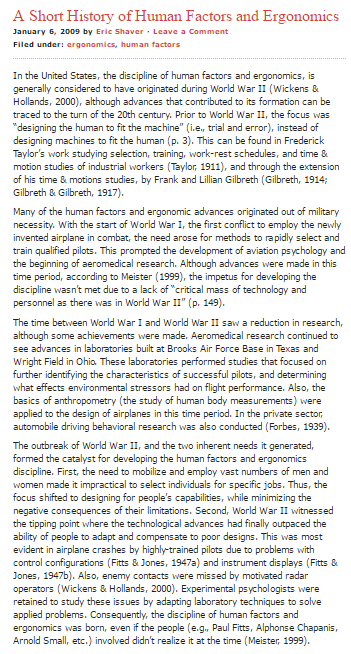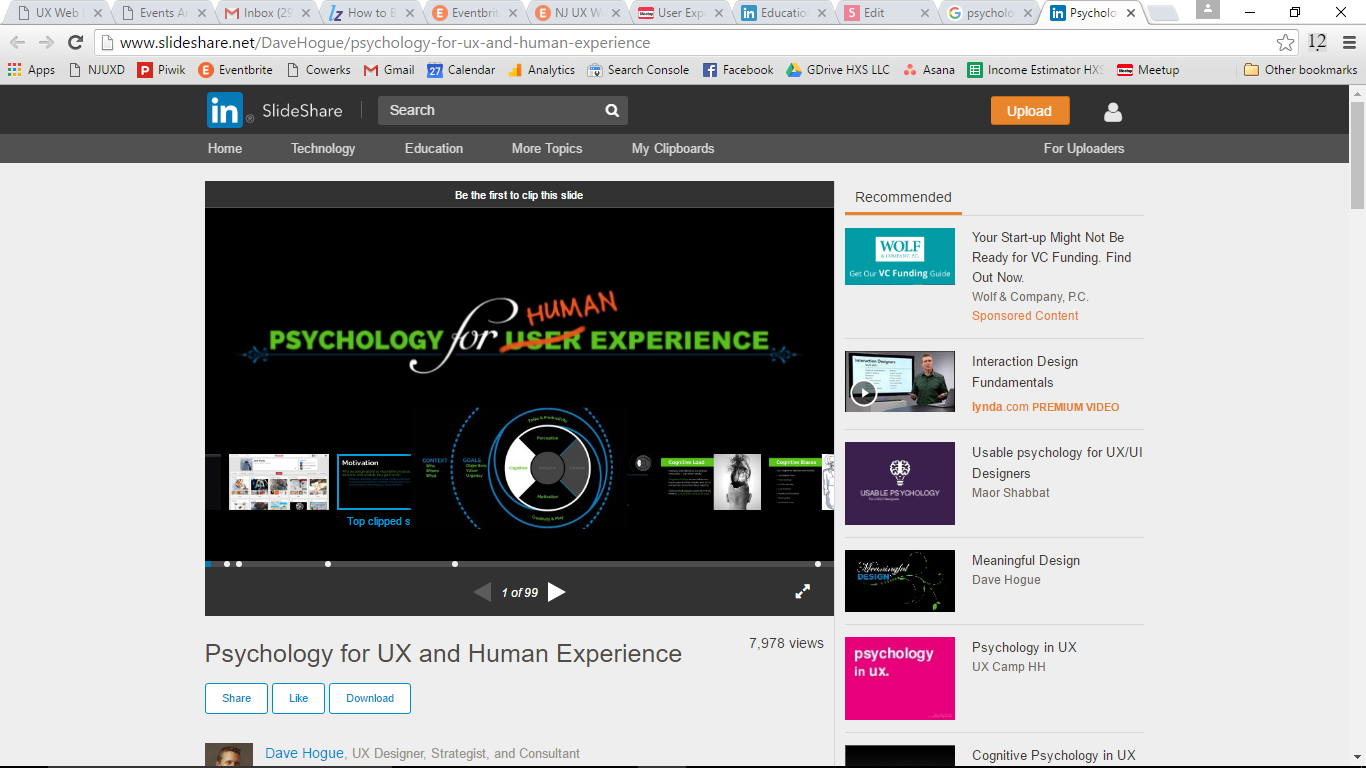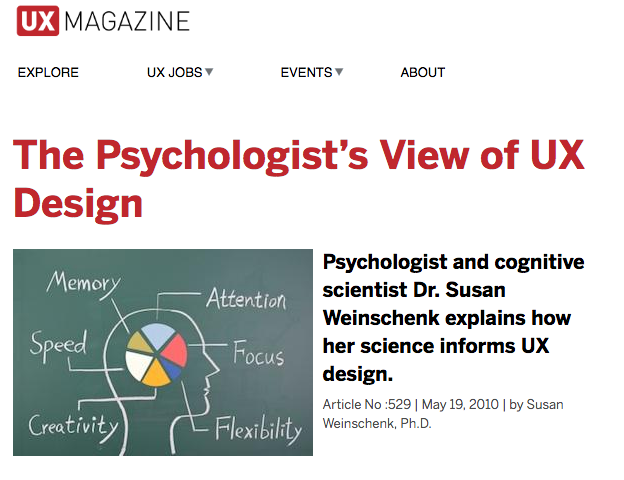User Experience,
Design,
AND THE Human Experience



human experience
of, relating to, or characteristic of people or human beings
practical contact with and observation of facts or events.
encounter or undergo (an event or occurrence).
professionals
Professionals think of human experiences based on perspectives - WHAT.
usability / user experience
customer experience
patient experience
citizen experience
employee experience
interaction design
service design
design thinking ...
HUMANS
Humans perhaps think of experiences based more on time - WHEN.
one-time experience
ad-hoc or on-demand experience
recurring experience
daily experience

human experience is ROOTED IN PSYCHOLOGY
People are humans in societies. People can be users (of interfaces or services), customers (of products), patients (of healthcare), citizens (of governments) depending on their context. But people share a universal design of hardware (body, brain), and variable software (culture, society). The internet/web allows people to create multiple identities (tribes, groups) in addition to the core software. What is most valuable and impactful in terms of design is that which deals with the hardware (body, brain).

HUMAN FACTORS
The discipline of human factors and ergonomics, is generally considered to have originated during World War II. The outbreak of World War II, and the two inherent needs it generated, formed the catalyst for developing the human factors and ergonomics discipline. First, the need to mobilize and employ vast numbers of men and women made it impractical to select individuals for specific jobs. Thus, the focus shifted to designing for people’s capabilities, while minimizing the negative consequences of their limitations.

HUMAN FACTORS
Second, World War II witnessed the tipping point where the technological advances had finally outpaced the ability of people to adapt and compensate to poor designs. This was most evident in airplane crashes by highly-trained pilots due to problems with control configurations. Experimental psychologists were retained to study these issues by adapting laboratory techniques to solve applied problems.

PSYCHOLOGY
The history of psychology as a scholarly study of the mind and behavior dates back to the Ancient Greeks. There is also evidence of psychological thought in ancient Egypt. Psychology was a branch of philosophy until the 1870s, when it developed as an independent scientific discipline in Germany and the United States.
http://www.slideshare.net/DaveHogue/psychology-for-ux-and-human-experience

USABILITY
Usability refers to how easy and learnable something is.
The concept of usability has its more recent and direct origins in the falling prices of computers in the 1980s, when for the first time it was feasible for many employees to have their own personal computer. In the 80s, most computer users had practically no, or only basic, training on operating systems and applications software. However, software design practices continued to implicitly assume knowledgeable and competent users, who would be familiar with technical vocabularies and system architectures, and also possess an aptitude for solving problems arising from computer usage."
USER EXPERIENCE
User experience goes outside the interface, the browser, the webpage (software), and considers the users emotional and mental context. A good design can improve the user's emotional and mental experience, avoiding frustration, wasted time, and unnecessary complexity.
USABILITY
A heuristic evaluation is a usability inspection method for computer software that helps to identify usability problems in the user interface (UI) design. It specifically involves evaluators examining the interface and judging its compliance with recognized usability principles (the "heuristics").

PRINCIPLES OF USABILITY
JAKOB NIELSEN 1995
- Visibility of system status
- Match between system and the real world
- User control and freedom
- Consistency and standards
- Error prevention
- Recognition rather than recall
- Flexibility and efficiency of use
- Aesthetic and minimalist design
- Help users recognize, diagnose, and recover from errors
- Help and documentation
https://www.nngroup.com/articles/ten-usability-heuristics/

PRINCIPLES OF USER EXPERIENCE?
Susan Weinschenk, Ph.D. 2010
- People don't want to think more than they have to
- People have limitations
- People make mistakes
- Human memory is complicated
- People are social
- ATTENTION
- People crave information
- Unconscious processing
- People create mental models
- Visual system
https://uxmag.com/articles/the-psychologists-view-of-ux-design
USER EXPERIENCE
Great design is the result of so many factors—and only a few are within your control, particularly when you first start out as a designer. Being able to deliver great design depends not only on your design ability, but on managing the design process and other participants in that process effectively. For example, you need to understand your client’s goals and drivers, as well as the strengths and limitations of the underlying technology. You need to understand when and how to delegate tasks and how to share ideas effectively with other designers and product team members.
http://www.uxmatters.com/mt/archives/2014/11/fundamental-principles-of-great-ux-design-how-to-deliver-great-ux-design.php
User Experience Design Human Experience
By benbakelaar
User Experience Design Human Experience
- 738



